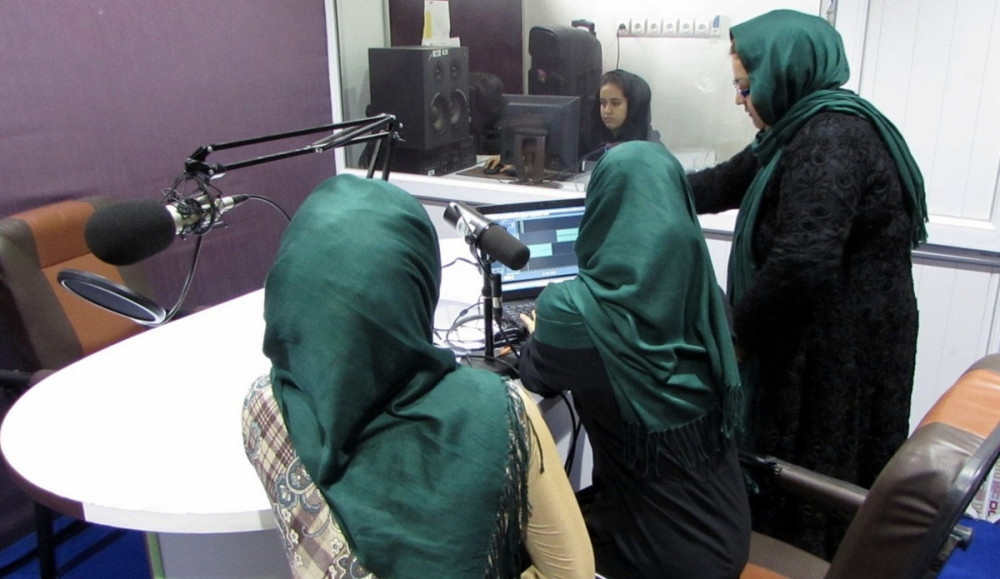Radio Begum - the voice of Afghanistan's women (Photo Courtesy: UN)

Hamza Ameer
IANS
In Taliban-controlled Afghanistan and its capital Kabul, which is the hub of global attention with questions being raised on rights to women and education for girls under the Taliban rule, Radio Begum is broadcasting the voices of women across the country.
Radio Begum, a radio broadcasting office for the women, is being run by women with programmes covering educational shows, books readings, and call-in counselling.
It works with the permission of the Taliban government.
“We are not giving up. We have to show that we don't need to be scared. We must occupy the public sphere,” said Hamida Aman, the founder of Radio Begum.
Radio Begum was founded on March 8, 2021 marking the International Women's Day. It continues to broadcast across Kabul and its surrounding areas, other than doing live shows on Facebook.
“Begum was a noble title used in South Asia, and it now generally refers to a married Muslim woman. This station is a vessel of women's voices, their pain, their frustrations,” said Aman.
Earlier, Radio Begum's female employees used to share an office with male colleagues. But now, with the Taliban in control, they have been separated with each gender having its own floor and a larger opaque curtain installed in front of the women's office.
“Previously played pop songs have now been replaced with traditional songs,” said Aman.
Radio Begum's office also turns into a classroom at least twice a day, when girls and boys, aged 13 or 14, open their books and the presenter gives them on-air lesson about social justice.
“My message to the girls who cannot go to school is to listen to our programe carefully, to use this golden chance and opportunity. They may not have it again,” said a 13-year-old girl named Mursal.
The on-air lessons are also for adults. Station Director Saba Chaman can be seen narrating the autobiography of Michelle Obama in Dari language.
Chaman is particularly proud of a show where listeners calls come in for psychological counselling.
The women working at Radio Begum say they are happy to be among the literate ones among the majority of illiterate females in the country.
“Women who are illiterate are like blind people. When I go to the pharmacy, they gave me expired medication. If I could read, they wouldn't do it,” said a female who could not read.
It is interesting to see that Radio Begum is allowed to continue its broadcast under the Taliban rule. Aman said she met with the spokesperson of Afghan Taliban Zabiullah Mujahid and told him that the radio was working towards giving voice to women.
“He was very encouraging,” she said.






